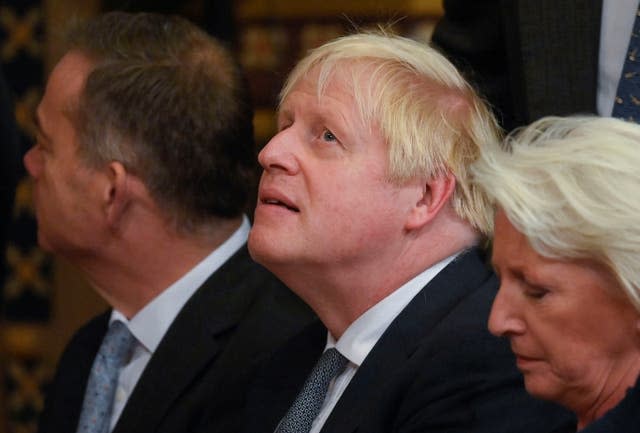Investigation into Zahawi tax affairs amid pressure on Sunak’s Government
Nadhim Zahawi is set to face an ethics inquiry into his tax affairs – as allegations against the Conservative Party chairman piled pressure on Rishi Sunak.
The Prime Minister on Monday ordered a potentially far-reaching investigation into Mr Zahawi but resisted calls to sack the former chancellor over the multimillion-pound tax dispute he resolved by paying a penalty.
Downing Street indicated Mr Sunak did not know about the penalty when he defended Mr Zahawi in the Commons last week, but as he announced the investigation the Prime Minister said “clearly in this case there are questions that need answering”.
“That’s why I’ve asked our independent adviser to get to the bottom of everything, to investigate the matter fully and establish all the facts and provide advice to me on Nadhim Zahawi’s compliance with the Ministerial Code,” he told broadcasters during a visit to a Northampton hospital.
“I’m pleased that Nadhim Zahawi has agreed with that approach and has agreed to fully co-operate with that investigation.”
The inquiry by new ethics adviser Sir Laurie Magnus is expected to focus on Mr Zahawi’s ministerial declarations, but it could extend to his prior tax arrangement and whether he lied to the media.
The investigation could also include claims Mr Zahawi falsely told officials he did not exchange WhatsApp messages with Conservative former prime minister David Cameron about Government loans for Greensill Capital before it emerged they were deleted.

Mr Sunak has defied demands to sack the minister, who insisted he “acted properly throughout” amid concerns about the settlement, estimated at around £5 million.
Mr Zahawi is understood to have paid a penalty – reported by The Guardian to be around 30% – during the time he was chancellor under Boris Johnson between July and September.
The Guardian’s report on the penalty came on Friday. The following day Mr Zahawi, the MP for Stratford-upon-Avon, released a statement insisting his “error” over shares in the YouGov polling company he co-founded was “careless and not deliberate”.
In a statement, Mr Zahawi said: “I welcome the Prime Minister’s referral of this matter to the independent adviser on ministerial standards. I look forward to explaining the facts of this issue to Sir Laurie Magnus and his team.
“I am confident I acted properly throughout and look forward to answering any and all specific questions in a formal setting to Sir Laurie.”
He said it would be “inappropriate to discuss this issue any further” while continuing as Conservative chairman.
Both Labour and the Liberal Democrats have said Mr Zahawi should face the sack, with Labour deputy leader Angela Rayner demanding answers from the Government in the Commons on Monday.
“Last week he told the House ‘all questions have been answered’ and he was told there was no outstanding issues, yet now the independent adviser is investigating,” she said of Mr Sunak.
“So will he publish the terms of reference? And why does the Prime Minister need an adviser to tell him that this conduct is unethical? If this isn’t a breach of the Ministerial Code, surely the code itself is wrong and it’s the Prime Minister’s job to fix it.

“If the Prime Minister came clean about what he knew and when, and took responsibility for the conduct of his own Cabinet, would we need yet another investigation into another member of his top team?”
Mr Zahawi’s tax affairs was one of two controversies Mr Sunak was forced to deal with as the week began, with BBC chairman Richard Sharp reportedly helping Mr Johnson secure a loan of up to £800,000.
Mr Sunak distanced himself from the allegation, saying the chairman’s appointment was made by “one of my predecessors”.
But the row meant fresh scrutiny of ethics within government, as William Shawcross, the commissioner for public appointments, said he would review the way competition for the post was run to ensure it was in compliance with Whitehall rules.
Mr Sharp insisted he was “not involved in making a loan or arranging a guarantee” for the then-prime minister.
He told BBC staff members his role was merely to “seek an introduction” for Sam Blyth, who reportedly acted as guarantor for a loan to Mr Johnson, “to the relevant official in Government”.
Mr Johnson, who was responsible for Mr Sharp’s appointment, dismissed the row as a “load of complete nonsense”, insisting Mr Sharp had no knowledge of his personal finances.

 Yahoo News
Yahoo News 
